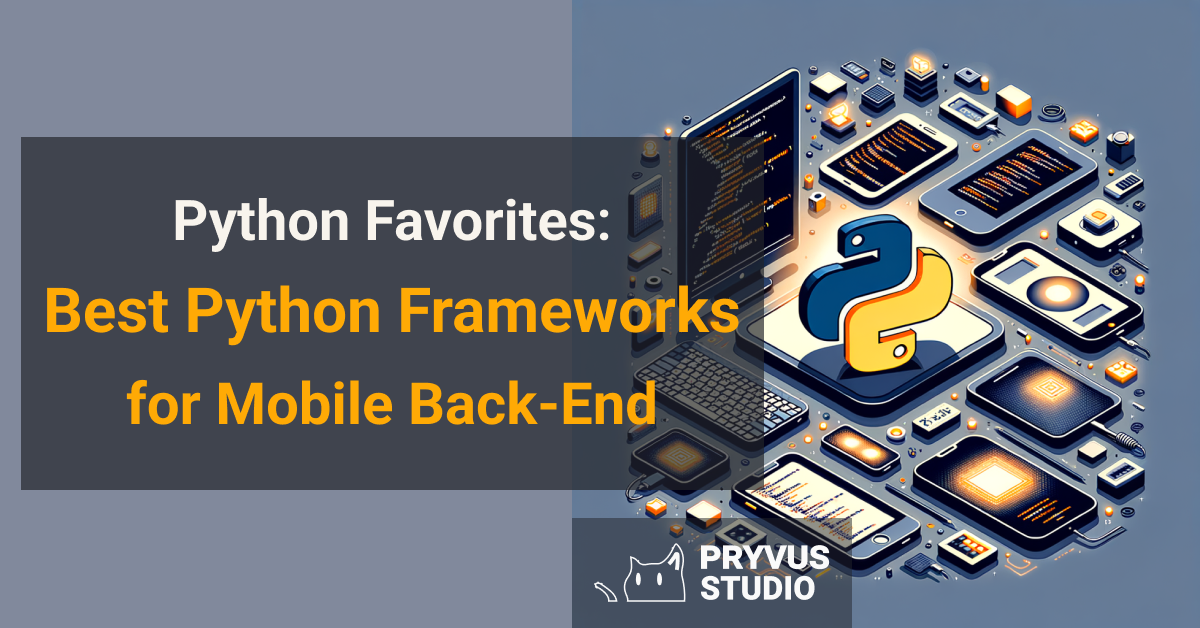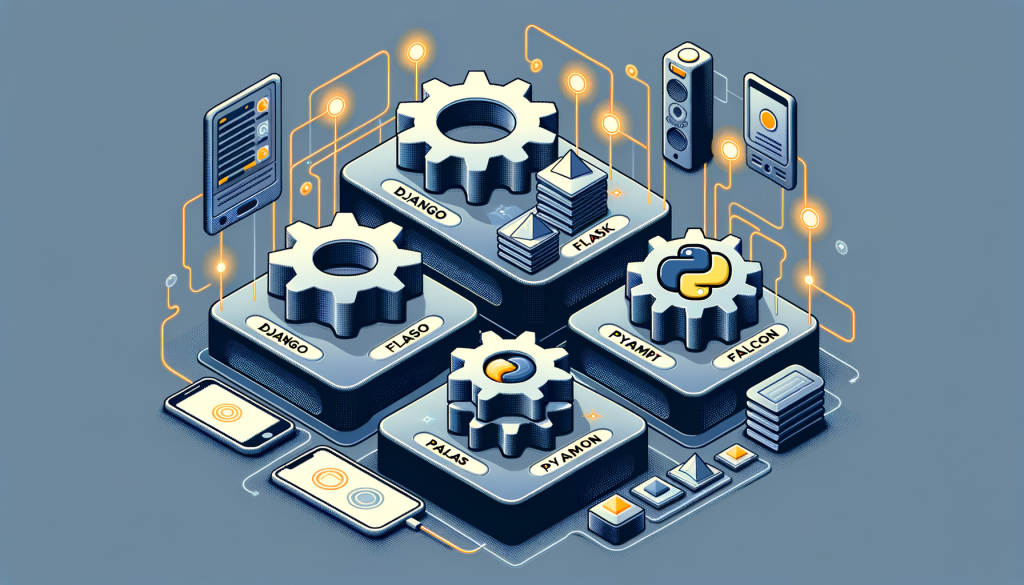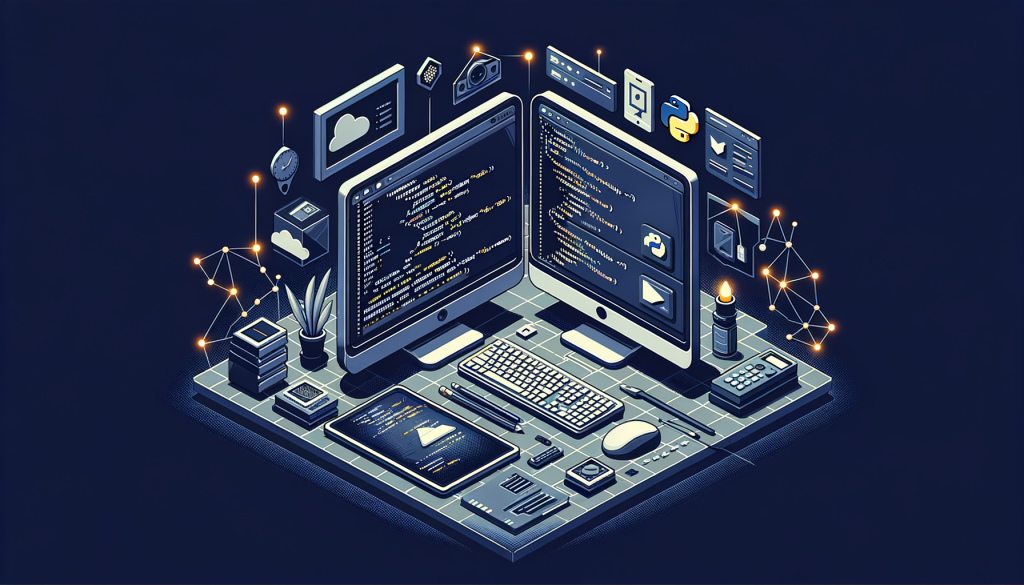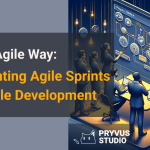Notice: Only variables should be passed by reference in /home/ploi/pryvus.com/public/wp-content/themes/pryvus/template-parts/content-post.php on line 12

Python offers several frameworks for mobile back-end development, each with unique strengths.
Choosing the right Python framework is crucial for the success of mobile app development. It ensures the app is scalable, maintainable, and efficient, meeting today’s high standards. In this article, you will learn:
- Key strengths of Django, Flask, Pyramid, and Falcon.
- How to choose the right Python framework for your project.
- Real-world success stories of Python in mobile back-end development.
Python Favorites: Best Python Frameworks for Mobile Back-End
When it comes to developing the back-end of mobile applications, Python stands out. Its simplicity, versatility, and robustness make it a top choice for developers. But, with several frameworks available, picking the right one can be daunting. Let’s dive into the best Python frameworks for mobile back-end development.
Choosing the right Python framework is crucial for efficient and scalable mobile back-end development.
Django: Known for its “batteries-included” approach, Django is perfect for developers looking for a comprehensive solution. It handles everything from user authentication to admin panels, making it ideal for complex applications.
Flask: If you’re after simplicity and flexibility, Flask is your go-to. It’s lightweight and easy to learn, offering developers the freedom to use the extensions they need.
Pyramid: Sitting between Flask and Django, Pyramid offers flexibility and allows for scaling up from a simple app to a complex one as needed.
Falcon: For those focusing on speed and handling high loads, Falcon is designed to be minimalist and fast, perfect for back-end services that require high performance.
Each of these frameworks has its strengths, and the choice depends on the project’s requirements. Pryvus Studio, with its expertise in custom software development, often utilizes these frameworks to deliver innovative solutions in web and mobile development. Their approach ensures that projects not only meet but exceed client expectations.
Comparing Popular Python Frameworks for Efficiency and Scalability
When embarking on mobile back-end development, choosing the right Python framework is crucial. Each framework offers a unique blend of features tailored for different project needs. In this section, we’ll dive into the efficiency and scalability of popular Python frameworks, helping you make an informed decision for your next project.
Choosing the right Python framework is key to ensuring both efficiency and scalability in mobile back-end development.

Django: The Heavyweight
Django, known for its ‘batteries-included’ approach, offers a comprehensive suite of tools for developers. It’s designed to facilitate rapid development and clean, pragmatic design. Thanks to its built-in components, Django is highly efficient for developers, reducing the time needed to deploy complex applications.
Flask: The Minimalist
Flask provides a lightweight and flexible framework choice. It’s perfect for projects requiring a high degree of customization and speed. Flask’s simplicity allows for quick changes and a more straightforward development process, making it a favorite for startups and small projects.
Pyramid: The Balancer
Pyramid serves as a middle ground between Flask and Django. It offers flexibility and allows developers to choose their tools and utilities, making it scalable for both small and large projects. Pyramid’s adaptability makes it suitable for projects that might change in scope or direction.
Falcon: The Speedster
Falcon stands out for its focus on speed and efficiency, making it ideal for handling high-load environments. It’s designed to be minimal and fast, allowing for the quick development of back-ends that can handle a large number of requests without slowing down.
In conclusion, the choice of a Python framework for mobile back-end development depends on the specific requirements of your project. Whether you need the comprehensive tools of Django, the simplicity of Flask, the balance of Pyramid, or the speed of Falcon, there’s a framework suited to your needs. Pryvus Studio’s expertise in these frameworks can help you unlock new opportunities and streamline your development process.
Real-World Applications: Success Stories with Python Back-End Frameworks
Python’s versatility shines in its frameworks, each tailored to different development needs. From powering startups to propelling global enterprises, Python back-end frameworks have demonstrated their value across a spectrum of applications. Let’s delve into some success stories that highlight the power of Python in the mobile back-end arena.
Python frameworks are the backbone of numerous successful mobile and web applications, showcasing their adaptability and efficiency.
Django: The Story of Instagram
Instagram, the colossal social media platform, relies on Django. Its ability to handle vast amounts of data and traffic while maintaining speed and reliability is a testament to Django’s robust architecture. This choice underscores the framework’s suitability for high-traffic applications.
Flask: Netflix’s Secret Ingredient
Netflix, a leader in streaming, uses Flask for its server-side operations. Flask’s lightweight and modular design allows for flexibility in developing microservices. This adaptability is crucial for Netflix’s ever-evolving service offerings, proving Flask’s capability in dynamic environments.
Pyramid: Dropbox’s Foundation
Dropbox, a file hosting service, leverages Pyramid. Its scalable nature supports Dropbox’s massive user base and data volume. Pyramid’s balance between simplicity and functionality makes it an ideal choice for cloud storage services.
Falcon: LinkedIn’s Speed Enhancer
LinkedIn uses Falcon for some of its back-end services, benefitting from its speed and efficiency. Falcon’s focus on minimalism and high performance is perfect for LinkedIn’s needs, ensuring quick response times for its millions of users.
These stories illustrate not just the technical capabilities of Python frameworks but also their strategic importance in achieving business goals. Choosing the right framework can significantly impact the success of a project, as demonstrated by these companies.
Integrating Python Frameworks with Front-End Technologies
When developing a mobile app, the choice of back-end technology is pivotal. Python, with its robust frameworks, offers a powerful solution. However, for a seamless user experience, integrating these back-end technologies with the right front-end tools is crucial. This synergy between front and back ends ensures a fluid, responsive app that meets today’s user expectations.
The success of a mobile app hinges on the seamless integration of Python back-end frameworks with front-end technologies.

Understanding the nuances of this integration process is essential. For instance, Django, with its built-in template system, naturally complements front-end technologies like React or Angular. This combination allows for dynamic web applications that are both powerful and user-friendly. Flask, on the other hand, offers more flexibility, enabling developers to choose the best front-end framework that aligns with the project’s needs.
Moreover, the integration isn’t just about selecting technologies; it’s also about adopting best practices for a cohesive development process. This involves consistent data exchange formats (like JSON), RESTful APIs for smooth communication between the front and back ends, and understanding the limitations and strengths of each framework.
For developers, knowledge of both Python back-end frameworks and front-end technologies is crucial. It’s not just about coding; it’s about creating an ecosystem where back-end logic and front-end design coexist harmoniously. Pryvus Studio excels in this area, ensuring that projects not only meet but exceed client expectations.
To choose the right Python framework for your project, consider the app’s requirements, the desired user experience, and the development team’s expertise. This decision will significantly impact the app’s functionality, performance, and overall success.
Choosing the Right Python Framework for Your Mobile App Development
Embarking on mobile app development can feel like navigating through a dense jungle. The choice of a Python framework plays a pivotal role in this journey. With an array of options, how do you choose the right one for your project? It’s not just about picking the most popular; it’s about finding the perfect fit for your app’s requirements.
The key to successful mobile app development is selecting the Python framework that aligns with your project’s goals and complexity.
Django, with its “batteries-included” approach, is ideal for developers looking for a comprehensive solution with lots of built-in features. On the other hand, Flask offers simplicity and flexibility, making it suitable for smaller projects or those requiring a more hands-on approach to development.
For apps that need to scale quickly, Pyramid offers an effective middle ground, providing flexibility to start small but the capability to scale up as needed. Falcon, known for its speed, is the go-to for high-performance applications that handle a lot of requests per second.
When choosing a Python framework, consider the following factors:
- Project Size and Complexity: Django or Pyramid for complex, Flask or Falcon for simple.
- Scalability Needs: Pyramid and Falcon are excellent for scalability.
- Development Speed: Django’s built-in features can speed up development.
- Performance Requirements: Falcon shines in high-load environments.
Remember, the right framework is the one that best matches your project’s needs. Pryvus Studio’s experience in mobile and web development, leveraging these Python frameworks, ensures projects not only meet but exceed client expectations. By understanding your project’s requirements and future goals, we can help guide you to the best framework choice, ensuring a successful and future-proof mobile app.
Leveraging Python for Future-Proof Mobile Back-Ends
In the world of mobile app development, choosing the right technology stack is paramount. Python, with its powerful frameworks, stands out as a robust choice for building future-proof mobile back-ends. Here’s why:
- Django offers an all-encompassing solution, making it ideal for complex projects.
- Flask shines with its simplicity and flexibility, suited for lightweight applications.
- Pyramid scales beautifully, bridging the gap between Flask and Django.
- Falcon excels in speed and efficiency, perfect for high-load environments.
These frameworks not only cater to diverse project needs but also ensure that your mobile back-end is scalable, maintainable, and efficient. Pryvus Studio’s expertise in leveraging these Python frameworks means your project is in capable hands, ready to exceed expectations and push the boundaries of what’s possible in mobile and web development.
But why stop here? The digital landscape is ever-evolving, and so are your project’s needs. Partner with Pryvus Studio, and let’s build something amazing together. With our deep understanding of Python and its frameworks, we’re here to help you navigate the complexities of mobile back-end development. Your vision, coupled with our expertise, will pave the way for innovative solutions that stand the test of time.
So, are you ready to take your mobile app to the next level? Contact Pryvus Studio today, and let’s turn your ideas into reality.


